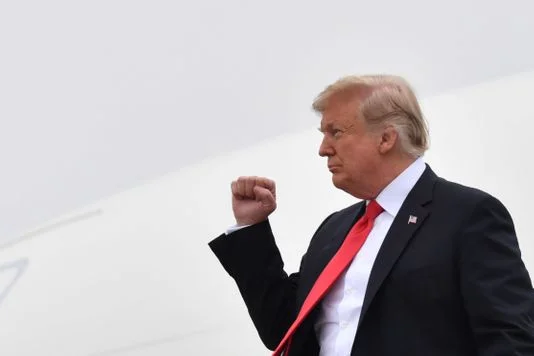New Poll: Americans Rank Healthcare as Most Difficult Expense to Pay
Debt, housing, devastating monthly healthcare payments –these are the top concerns of American households according to a new morning consult poll.
It’s not surprising to see that rising premiums are feeding anxiety across the country, but it is disturbing to see healthcare costs ranking at the top.
The poll shows 29% of households rank healthcare as the monthly payment that is the most difficult for them to pay, with 21% more ranking it as their second biggest monthly financial stressor.
To give you an idea of how crazy that number is: It is tied with housing as the top monthly financial stressor. The same amount of people are stressed about paying their monthly premiums and out of pocket costs as making rent or mortgage payments.
Food and transportation only clocked in at 4%.
Hard to think of a better indicator for how broken our healthcare system is.
Read More
Gavin Newsom is already moving California toward single-payer
Los Angeles Times
By THE TIMES EDITORIAL BOARD
JAN 09, 2019 | 3:10 AM
Gavin Newsom backed an assortment of ambitious and expensive programs as he campaigned for governor, none more so than the idea of converting the state to a single-payer healthcare system. On his first day in office Monday, Newsom reaffirmed that goal, but set the state on a more measured — and far more achievable — path toward insuring all Californians.
The most dramatic step Newsom took was also the one least likely to bear fruit: He signed a letter asking the federal government’s permission to mingle federal dollars (such as funding for Medicare, Medicaid and veterans health benefits) and state funds into a single-payer system, replacing the various public and private insurance programs with one run by Sacramento. The chances of the Trump administration signing on to such a plan seem more remote than the most distant star in the Milky Way.
Read More
Trump’s Attack on Medicare for All Has Industry Fingerprints All Over It
By Wendell Potter, TRUTHOUT
Recently, the president decided to take a break from tweeting conspiracy theories to write an op-ed attacking supporters of Medicare for All. While engaging in what psychologists would probably call “projection,” he accused the Medicare for All movement of putting seniors at risk, rationing health care and trying to destroy the Medicare system.
I’m a former executive at two of the country’s largest insurance companies. I spent 20 years working in PR for Humana and then Cigna, rising to the level of vice president before I had a crisis of conscience. As a result, I know exactly how this op-ed came to be. The process doesn’t start at the White House. It didn’t include a careful review of policy, and it wasn’t an idea his staff came up with.
Read More
CNBC: 70% of Americans now support Medicare-for-all—here's how single-payer could affect you
CNBC
Yoni Blumberg | @YoniBlum
1:05 PM ET Tue, 28 Aug 2018
The vast majority of Americans, 70 percent, now support Medicare-for-all, otherwise known as single-payer health care, according to a new Reuters survey. That includes 85 percent of Democrats and 52 percent of Republicans. Only 20 percent of Americans say they outright oppose the idea.
"Medicare is a very popular program, so the idea of expanding it to everyone is popular as well," Larry Levitt, senior vice president for health reform at the Kaiser Family Foundation, tells CNBC Make It. "The advantage of Medicare-for-all, which is much closer to how the rest of the world provides health care to their residents, is that you can achieve universal coverage at a lower cost."
Read More
Why the Healthcare Justice Movement is Just Getting Started in California and Beyond.
Courtesy Medium
By Paul Y. Song, MD
Physicians for a National Health Program & The Campaign for a Healthy California
Jul 29
As the sun begins to set on California’s two-year legislative session, it will officially signal the death of the Healthy California Act better known as SB562. After Assembly Speaker Anthony Rendon called SB562 “woefully incomplete” and banished it into legislative purgatory, it became quite obvious when none of its original co-sponsors or any other elected official emerged to fight on its behalf, that this would be its ultimate fate.
For all the “woefully incomplete” arguments made against 562 of it not having a funding mechanism, being dependent on federal waivers, and costing too much, Sacramento needs to explain its own hypocrisy. Why did the same assembly take up AB 1184 without providing any funding mechanism? Why did Sacramento rubber stamp Governor Brown’s fiscally irresponsible and grossly over-budget bullet train project and initiate construction without the guaranteed federal dollars and waivers that are desperately needed to complete it? How can Sacramento continue to call SB562 too expensive while ignoring the fact that our state already spends $368 Billion a year on healthcare of which 71 cents is already paid for by California taxpayers? And how can Sacramento continue to ignore and fail to address State Controller Betty Yee’s latest report of a $91.5 Billion unfunded healthcare retiree liability which increased $14 Billion from the year before, or our states’ $24 Billionannual school retiree healthcare liability?
Read More
New York Times: Single-Payer Health Care in California: Here’s What It Would Take
By Patricia Cohen and Reed Abelson
New York Times
May 25, 2018
All the leading Democratic contenders in the June 5 primary have pledged support for a single-payer system run by the state. The front-runner, Lt. Gov. Gavin Newsom, the former mayor of San Francisco, has made it the centerpiece of his campaign.
“There’s no reason to wait around on universal health care and single-payer in California,” he has declared.
Even beyond California, many Democrats are hoping to energize supporters by taking a cue from Bernie Sanders’s 2016 presidential campaign, which embraced a single-payer system, “Medicare for All.” But the idea primarily functions as a rallying cry.
“Voters are thinking about the fundamental values associated with single-payer,” said Kelly Hall, an independent health consultant who works with the Service Employees International Union-United Healthcare Workers in California, which has endorsed Mr. Newsom. “Almost zero voters have thought about the policy implications.”
Read More
Kaiser Health Tracking Poll – March 2018: Views on Prescription Drug Pricing and Medicare-for-all Proposals
Majority support Medicare for all
Ashley Kirzinger Follow @AshleyKirzinger on Twitter, Bryan Wu, and Mollyann Brodie Follow @Mollybrodie on Twitter
Published: Mar 23, 2018
Key Findings:
The March Kaiser Health Tracking Poll finds that more than a year into President Trump’s presidency, half of the public (52 percent) say passing legislation to bring down the price of prescription drugs should be a “top priority” for President Trump and Congress. Yet, less than half of the public (39 percent) say they are confident that President Trump and his administration will be able to deliver on the promise that Americans will pay less for prescription drugs than they pay now.
72% of Americans say drug companies have too much influence in Washington – more than say the same about the National Rifle Association
Pharmaceutical companies rank among the top organizations that the public – including majorities of Democrats, independents, and Republicans – say has “too much influence” in Washington. Seven in ten (72 percent) say pharmaceutical companies have “too much influence,” which is similar to other entities like large businesses and Wall Street, but much higher than the shares of the public who say the National Rifle Association (NRA), hospital groups, or doctors groups have “too much influence” (52 percent, 36 percent, 30 percent, respectively). There is stronger agreement among partisans on the influence of pharmaceutical companies with majorities of both Democrats (65 percent) and Republicans (74 percent) saying pharmaceutical companies have “too much influence” in Washington.
Read More
Charlie Munger: Health-care providers 'are artificially prolonging death so they can make more money'
Berkeley Lovelace Jr. | @BerkeleyJr
Published 8:50 AM ET Mon, 7 May 2018 Updated 9:25 AM ET Mon, 7 May 2018CNBC.com
The U.S. health-care system is "shot through with rampant waste," Charlie Munger tells CNBC.
"A lot of the medical care we do deliver is wrong," he says.
He claims, "A lot of our medical providers are artificially prolonging death so they can make more money."
Munger: Health-care system is shot through with rampant waste 5:32 PM ET Mon, 7 May 2018 | 05:33
The U.S. health-care system is "shot through with rampant waste" and has become "immoral," billionaire investor Charlie Munger told CNBC on Monday.
"A lot of the medical care we do deliver is wrong — so expensive and wrong. It's ridiculous," Munger, a vice chairman at Berkshire Hathaway, said in a "Squawk Box" interview. "A lot of our medical providers are artificially prolonging death so they can make more money," he claimed.
Read More








